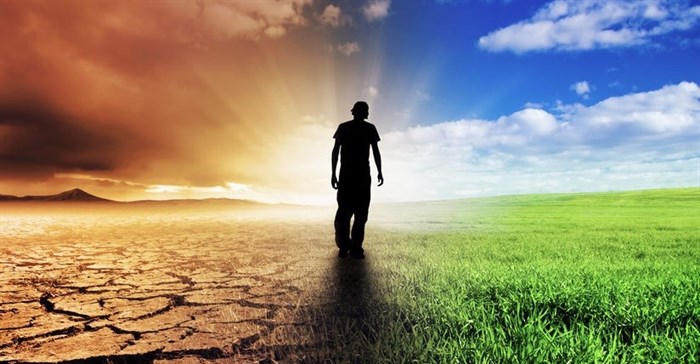
Top stories
More news










A changing climate will interact with a range of existing socio-economic and environmental conditions and activities. Issues like poverty, underdevelopment, conflict and governance can either ameliorate or worsen the impacts of climate change and variability.
The savannas of Africa , for example, represent one of the last agricultural frontiers in a world which must double food production in the next 50 years, not least to feed the still-growing and rapidly urbanising African population.
Agriculture dominates most African economies. As a sector, it will be hard hit by rising temperatures and more variable rainfall, and has many links to the wider economy and local livelihoods.
Adapting to climate change requires that the climate system be well understood and managed as effectively as we can given the current state of available science. Livestock management, crop management and fuels from biomass need to be sustainably managed so that arable land can be used to its full potential while limiting damage to the earth.
If this is not done effectively the effects of climate change, including decreases in crop productivity and increased crop and livestock diseases, could be devastating to both large-and small-scale agriculture and the enterprises which depend on them.
It is not all bad news: some areas and agricultural activities could benefit from changes in climate; unfortunately they are few in Africa.
The availability of water, and especially good quality water, is already a challenge in many areas of the continent.
Climate change will amplify existing stress on water availability, aggravated by increased urbanisation and the competing demands for domestic consumption, agriculture and industry.
A variable climate impacts Africa's water supply in several ways. Severe floods and droughts already result in significant challenges on the continent.
As the African climate changes, it will become increasingly difficult for plants and animals to adapt and keep pace. Species with very local distributions and a poor ability to move struggle the most: their habitat is increasingly fragmented and transformed due to changing land use and unsuitable due to climate change.
The impacts on ecosystem composition are likely to be quite profound. Composition refers to what species occur in particular landscapes. Africa has numerous restricted-area hot spots of biodiversity that need protecting. Also, tourism based on wildlife is a growing economic activity in a world that has lost much of its nature.
Climate change is already having a negative impact on ecosystem services like grazing, fuel wood and water. But there are land use changes underway with equally large, or even larger, effects. Some of these are increasing the availability of these key services, so the net outcome in the future is not uniformly catastrophic.
The processes of maintaining the co-existence of trees and grasses in the savanna lands that occupy most of sub-Saharan Africa are complex. They include fire, grazing, browsing and wood harvest.
They may also include the continuing rise in atmospheric CO2 concentration which underlies climate change. CO2 modestly stimulates plant growth and improves their efficient use of water.
Its effects are more positive for trees, shrubs and herbs than for tropical grasses or tropical grass crops like maize.
Rising CO2, associated climate change and changes in fires, could lead to tree invasions into the montane grasslands of southern and East Africa and a general thickening of woody plants in the savannas.
But the overall trend in Africa is likely to be a loss of woody cover - leading to further carbon emissions to the global atmosphere - because of land cover change.
The world's safe climate space continues to shrink. Across the world many groups, including business, civic society, governments and scientists are working on adapting to and mitigating climate change. One of the major global efforts is centred on the United Nations Framework Convention on Climate Change, signed by the vast majority of countries in the world.
The crucial 21st CoP will be held in Paris in December 2015 where, it is hoped, nations will reach a binding agreement on substantial emission reductions.
At the conference signatory countries meet in formal sessions and civil society, including business organisations and other groups, gather in more informal sessions to debate ways of addressing the climate challenge.
The Paris meeting could deliver a global agreement on climate change. But it could also result in continued stalling. The outcomes for those most vulnerable, including many living in Africa and in small island states, will be profound.
This article was co-authored by Robert Scholes, a Professor at Wits in the School of APES and in the Global Change and Sustainability Research Institute.![]()

The Conversation Africa is an independent source of news and views from the academic and research community. Its aim is to promote better understanding of current affairs and complex issues, and allow for a better quality of public discourse and conversation.
Go to: https://theconversation.com/africa